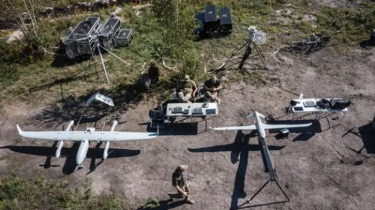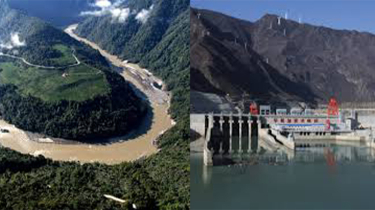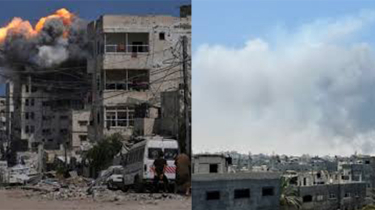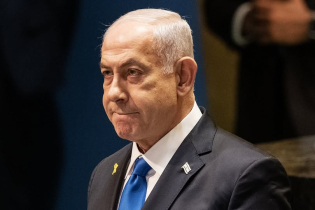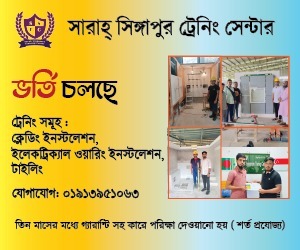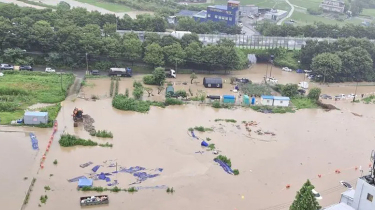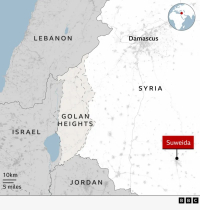How Ukrainian Kids Are Being Taught to Love Russia!
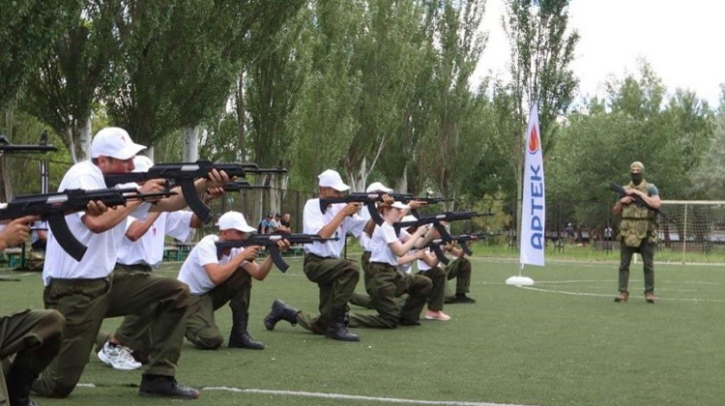
Published : 16:52, 20 July 2025
In the Russian-occupied territories of eastern and southern Ukraine, a large-scale campaign is underway to indoctrinate children with pro-Russian ideology, militarised values, and loyalty to the Russian state. This strategy forms a key component of Russia's broader efforts to dismantle Ukrainian national identity and impose its own socio-political and historical narratives on the next generation. In nursery schools across regions such as Luhansk, Donetsk, and Zaporizhzhia, children are subjected to daily rituals glorifying Russia and the ongoing war.
Youngsters are made to participate in symbolic displays of militarism, such as holding banners shaped like the letter "Z"—the emblem of Russia’s invasion—and chanting nationalist slogans in unison. Music, slogans, and ceremonies foster a performative loyalty to the Russian state while deliberately marginalising Ukrainian cultural and national identity. Russia's campaign to re-educate Ukrainian youth extends deeply into the school system. Ukrainian teachers who have refused to collaborate or fled the occupied territories are being replaced by Russian educators, often incentivised with large lump-sum payments to relocate. These replacements deliver an entirely Russian curriculum that rewrites recent history, glorifies the Russian military, and presents Ukraine as a hostile construct of the West. Educational materials portray Russia as a civilisational saviour and frame the 2022 invasion as a necessary intervention to preserve order and humanity. Beyond the school walls, state-directed cultural programming reinforces the ideological messaging. Children are regularly taken on excursions to state-run exhibitions such as Russia – My History and Special Military Operation Heroes, which are carefully curated to instil admiration for Russian military exploits and revile Ukrainian sovereignty.
This cultural and historical revisionism aims to create a cohesive pro-Russian worldview in the minds of Ukrainian children.The institutional drivers of this campaign are extensive. Chief among them is Yunarmia (Youth Army), a militarised youth movement affiliated with the Russian Ministry of Defence, which has established branches in occupied Ukrainian regions. It offers combat training, ideological education, and paramilitary-style discipline to children as young as eight. Other Kremlin-backed groups—including Movement of the First Ones and Warrior—promote Soviet-style patriotic education, military drills, and competitions that require knowledge of Russian history and combat skills. These organisations are increasingly embedded in the daily lives of Ukrainian children, particularly those in rural or economically distressed areas. Teachers and students are subjected to ideological coercion. In some occupied schools, daily routines begin with the Russian national anthem and the recitation of pledges to the Russian state. Participation in parades, propaganda events, and public displays of allegiance is often mandatory. Non-compliance may result in social ostracisation or educational penalties. Former students have reported being compelled to attend weekly rehearsals for Soviet-style parades, produce care packages for Russian soldiers, and stand through militaristic ceremonies in order to complete their education.
This campaign extends to the physical relocation of children. Thousands of Ukrainian children have been taken from their homes and brought to Russia under programs such as "4+85", a state initiative aimed at integrating children into "a unified Russian society". These children are often placed in "re-education camps" or with Russian foster families, where they are cut off from Ukrainian language, culture, and relatives. Many of these removals are non-consensual, and efforts to reunite families have been met with obstruction or silence from Russian authorities. International legal standards, including the Fourth Geneva Convention, explicitly prohibit the conscription, indoctrination, and forced transfer of children by an occupying power. Despite this, systematic practices of forced assimilation and ideological reprogramming persist. In 2023, the International Criminal Court issued an arrest warrant for Russian President Vladimir Putin over the unlawful deportation of Ukrainian children.
However, these charges have been denied by Russian officials, who continue to portray the campaign as humanitarian aid and cultural integration. The ongoing war in Ukraine is not only being fought on battlefields. It is also being waged in classrooms, playgrounds, and cultural centres, where Russia is attempting to reshape the identity of a generation. Through the imposition of language, history, symbols, and militarised education, Russia is orchestrating a comprehensive project of enforced assimilation—one that seeks to permanently alter the cultural and political landscape of Ukraine by targeting its most vulnerable: its children. Source- BBC News
BD/S



